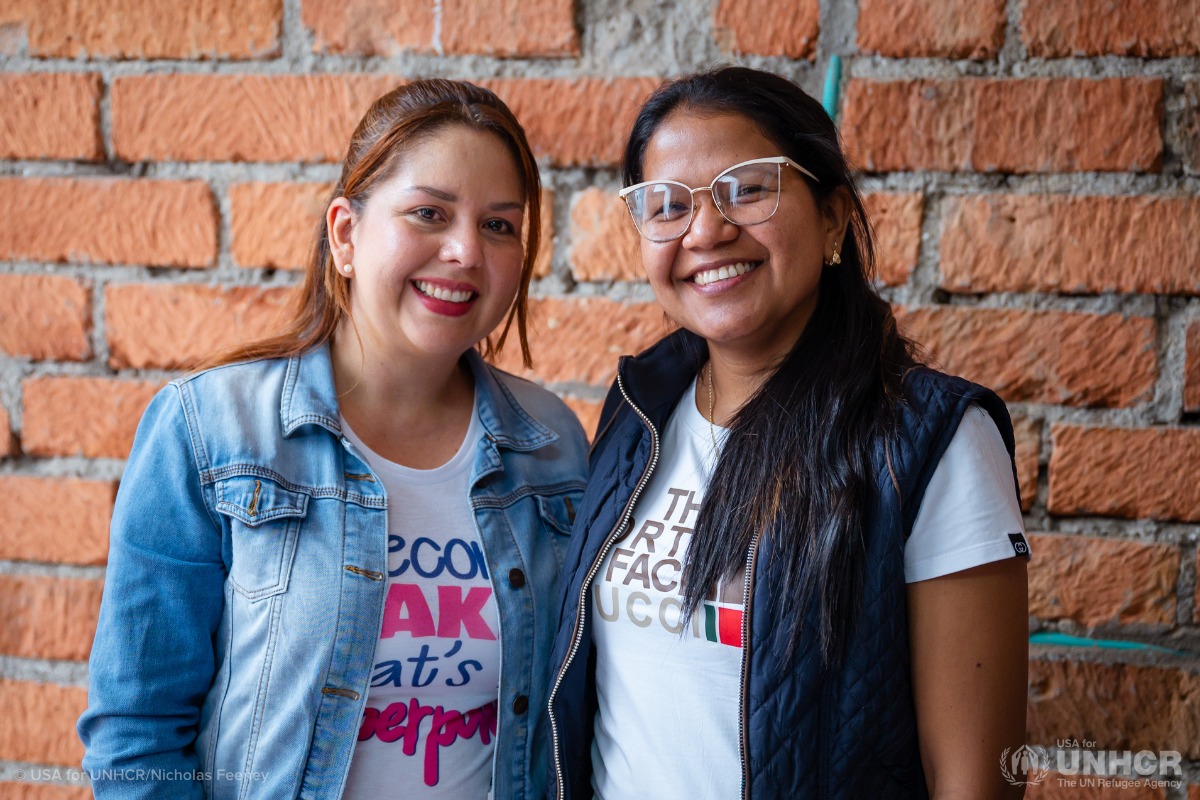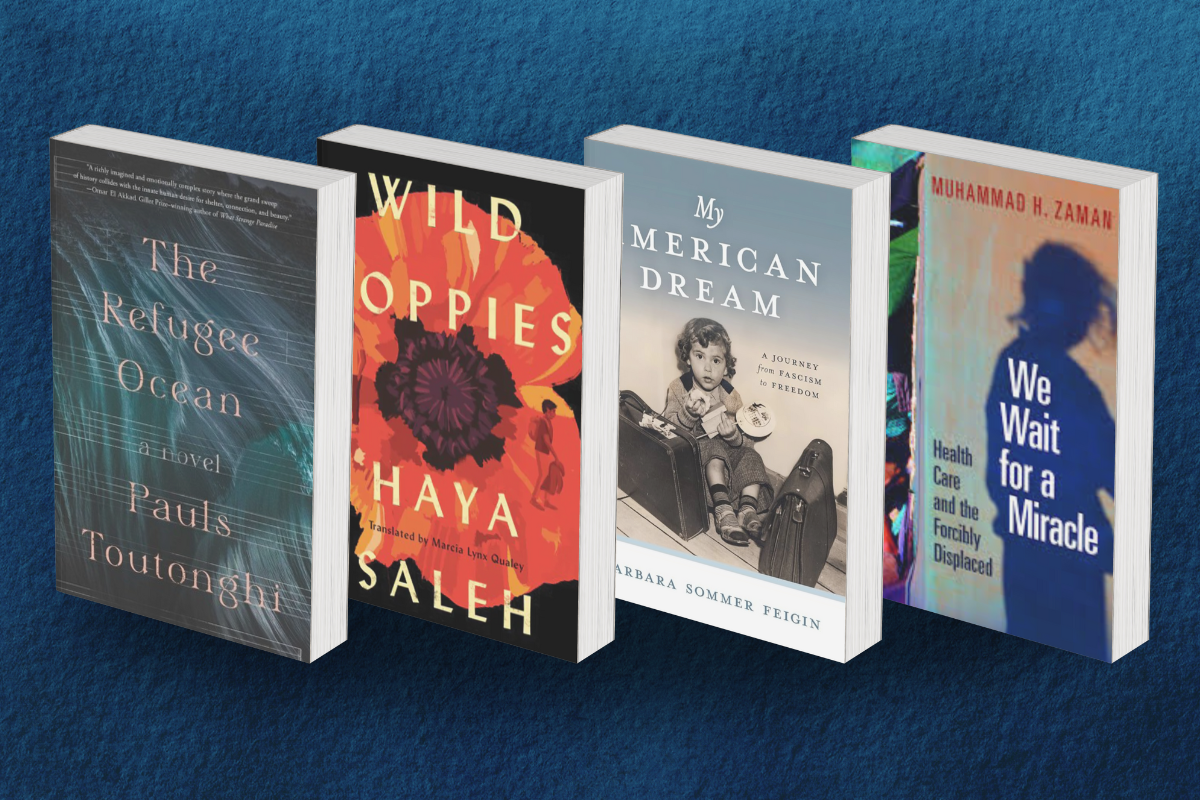Meet four people in refugee communities who are creating a greener future
The climate crisis is one of the most defining crises of our time, and displaced people are living on the frontlines and facing some of the most dangerous consequences.
According to UNHCR, the UN Refugee Agency, in 2022 alone, more than 32 million people were displaced by extreme weather events such as floods, droughts, heavy rains and earthquakes. Despite these disasters and the challenges they bring, displaced people are taking innovative climate action to mitigate the effects of climate change, while supporting and enriching their communities.
This Earth Day, meet four individuals who are making positive impacts on their communities and creating a greener future with support from UNHCR.
Paulinho Muzaliwa
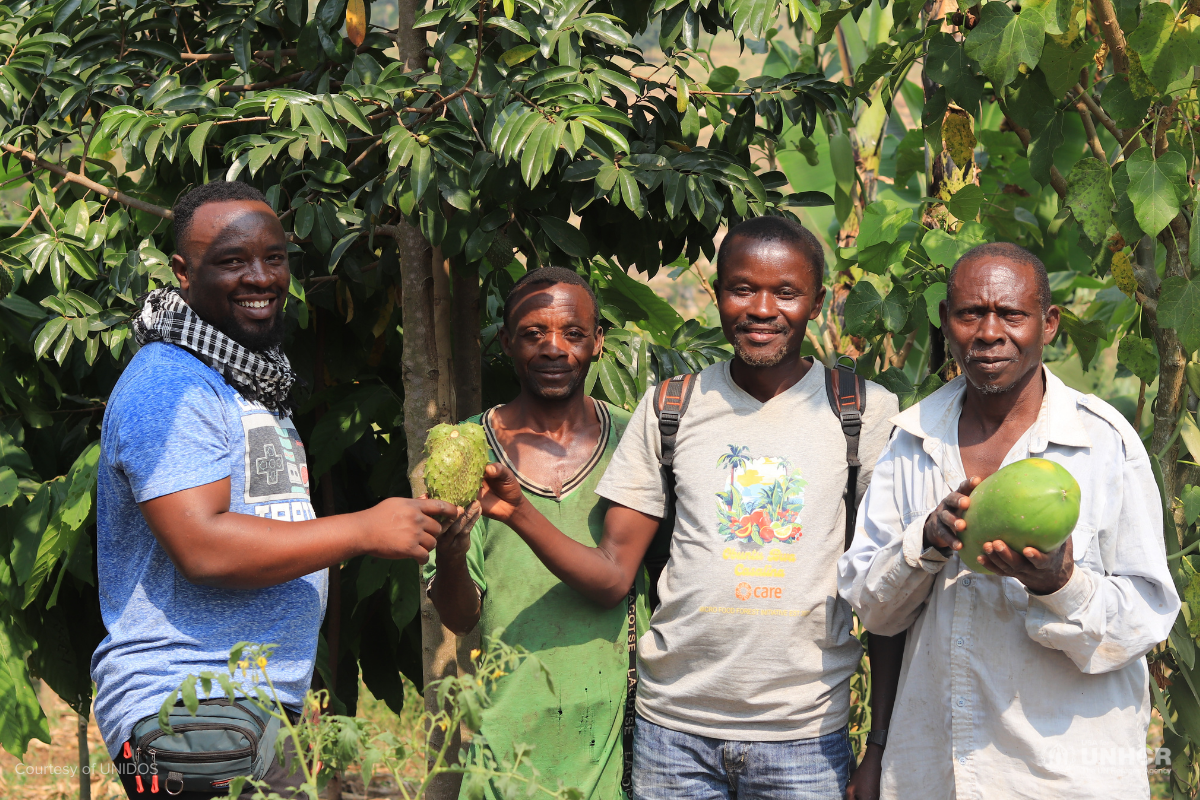
In 2017, Paulinho Muzaliwa was forced to flee his home in the Democratic Republic of the Congo after armed militia groups began fighting in the North Kivu region.
He soon found safety in the Nakivale refugee settlement in Uganda, where he began using his ambition and experience to help himself and others in his new community.
“I wanted to build a space that would enable me to let go of what I had [experienced] in my home country and connect with other young refugees,” says Paulinho.
After completing an online course in regenerative agriculture practices through the Permaculture Education Institute based in Australia, Paulinho founded UNIDOS, a refugee-led organization that uses regenerative agriculture practices to empower refugees at the Nakivale refugee settlement.
Today, UNIDOS has supported nearly 700 women with entrepreneurial skills and is helping them play active roles in greening the settlement by planting moringa and other fruit trees while building small businesses.
Paulinho’s vision for UNIDOS is grand and he foresees a future where refugees will play a fundamental role in an agricultural revolution. “We want to co-create a new renaissance where regenerative agriculture will be the foundation,” says Paulinho, “where refugees will be able to grow an abundance of organic food not only for consumption but also for business purposes.”
This year, Paulinho was awarded the Gene Dewey Refugee Award for his visionary leadership and extraordinary dedication to helping people forcibly displaced from their homes.
Alice Lemuyubenyo
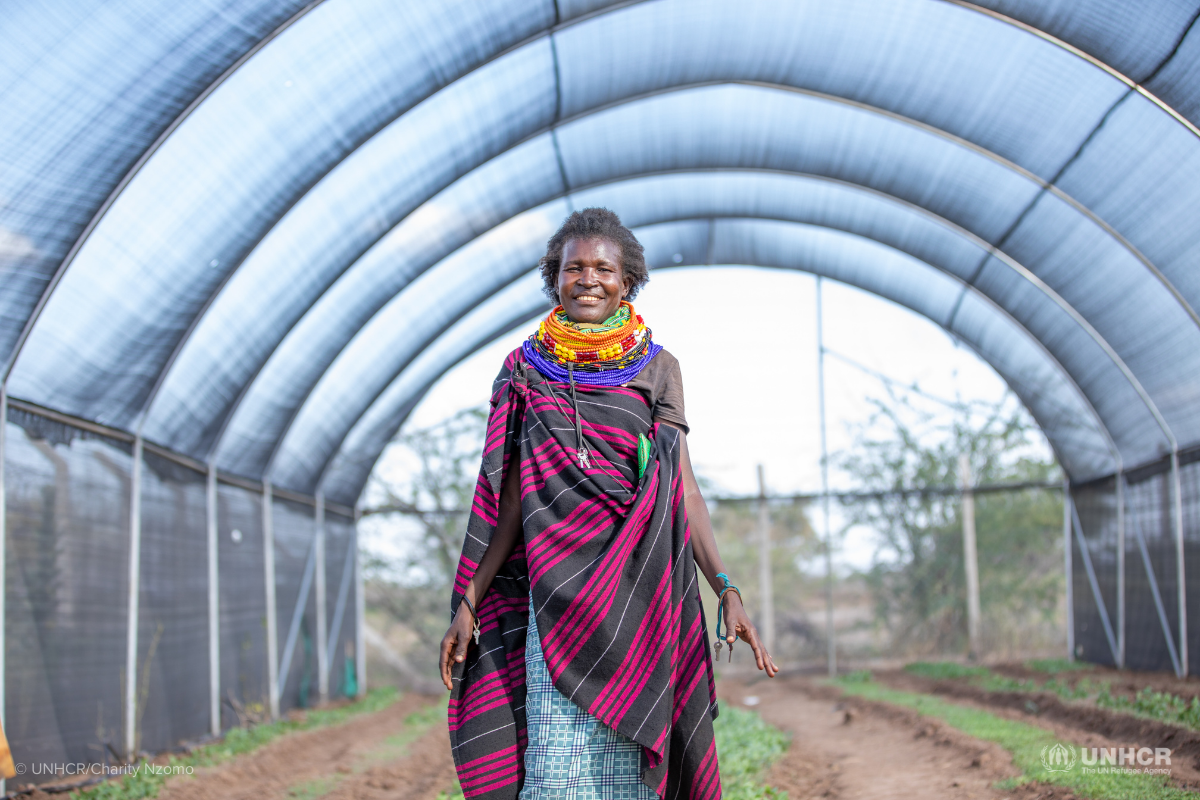
In 2015, the Kalobeyei refugee settlement was established to help accommodate the expanding population of the Kakuma refugee camps. The land was officially handed over by the people of Turkana, who welcomed their new refugee neighbors. Now the two communities work hand-in-hand on farming initiatives supported by UNHCR.
Turkanas, who were originally pastoralists, have adopted new livelihood practices, such as farming, to provide for themselves and their families. With support from UNHCR and other humanitarian organizations, members of the Turkana host community and refugees have established a farm in Kang'ura village where they work together to grow and sell vegetables — both as a food source for the community and as a means to sustain their livelihoods.
Alice Lemuyubenyo is a local farmer in Turkana who has benefited from this initiative.
“Before the establishment of Kalobeyei, we did not have access to facilities like this one. We can now water our vegetables in the morning and evenings keeping them healthy," Alice explains. The initiative helps Alice both grow and sell her crops. "We sell our vegetables at Kalobeyei market. Our customers are mostly refugees,” she says.
Ahmed Abdullah
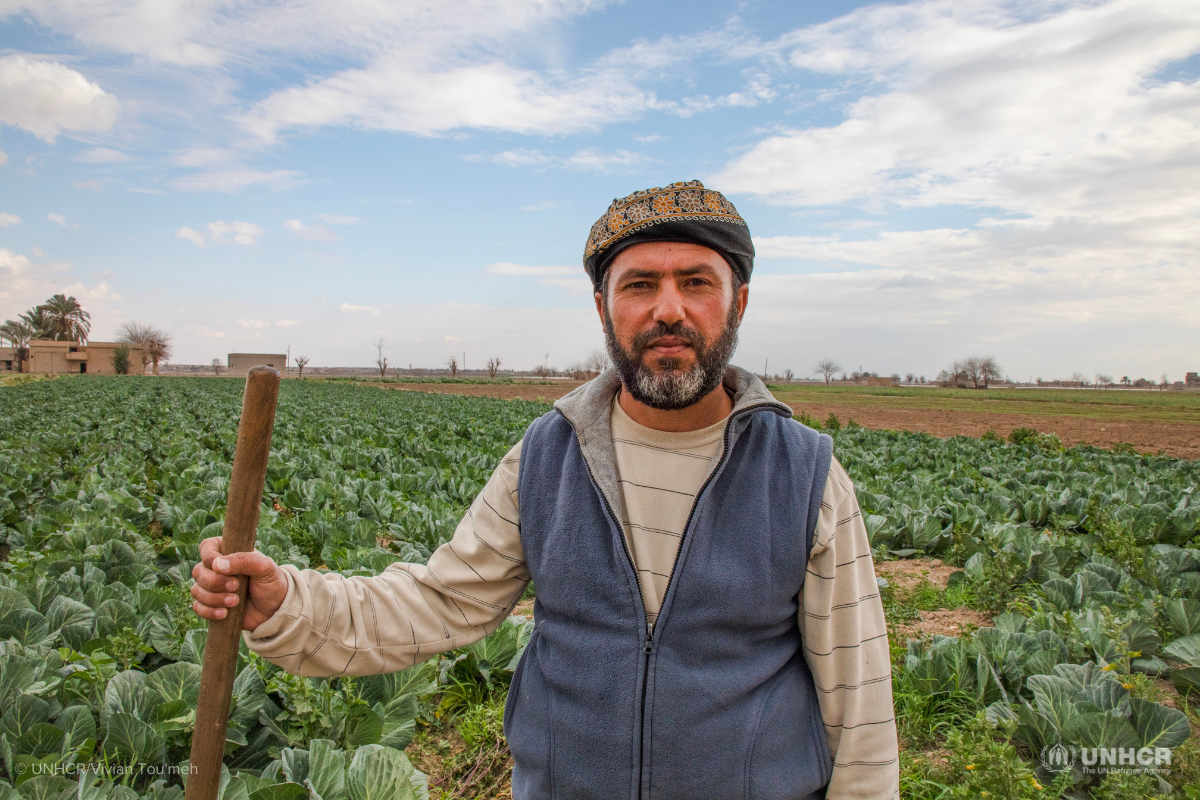
Ahmed Abdullah and his family were once residents of Al-Quriyah, a city in eastern Syria, before their lives were upended by escalating violence. Ahmed, his wife Aesha and their six children sought refuge in the Al-Sad refugee camp in Al-Hassakeh.
After spending a year in the camp, Ahmed returned to Al-Quriyah, only to find his formerly bustling farmland had become dry and barren. He was forced to start from scratch. Ahmed received aid, which included potato seeds, from UNHCR and the Syrian Arab Red Crescent.
The initial potato project proved fruitful, generating income that allowed him to reinvest in his farm. "We started from zero. And now it is a successful project,” says Ahmed. “We benefited from it, and through the money we gained, we were able to buy seeds for another season," he continues.
Ahmed is now successfully cultivating cauliflower, cabbage, onion and potatoes, his children attend school and his wife assists him with the farm work.
Elie Nsala
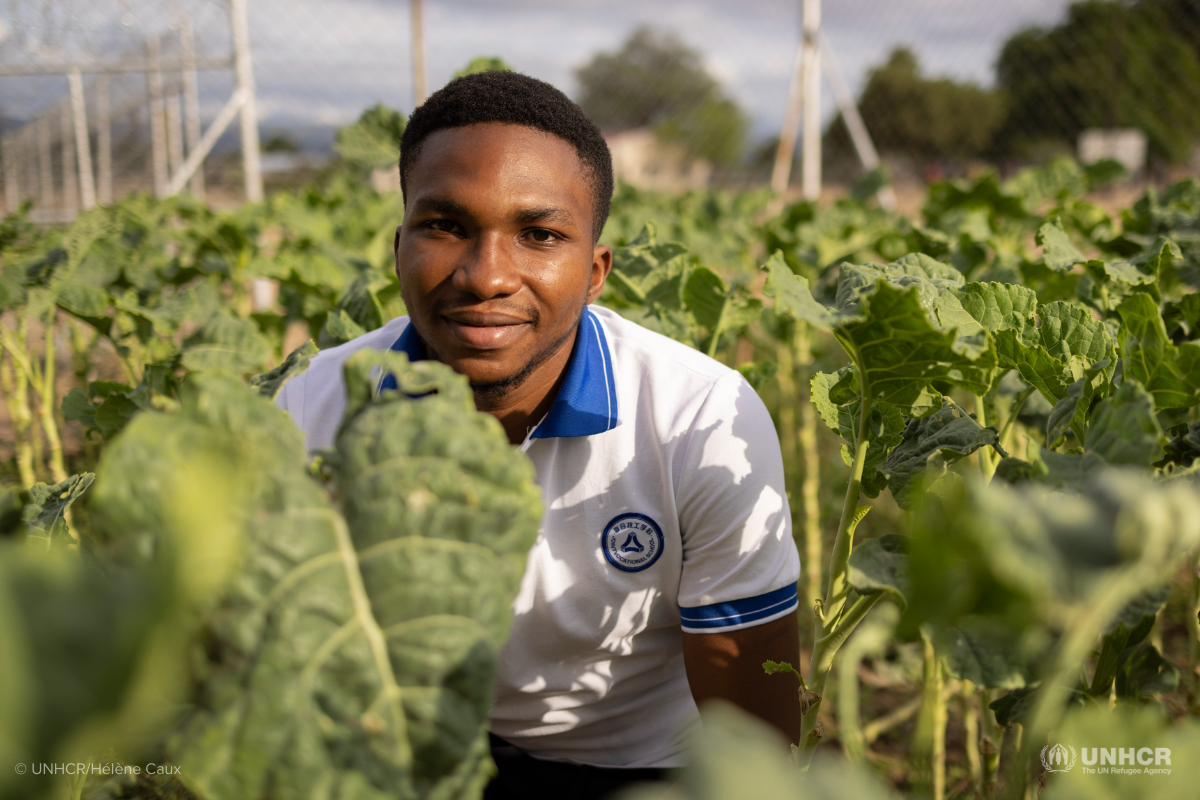
After being forced to flee his home in the Democratic Republic of the Congo due to insecurity, 23-year-old Elie Nsala found safety at the Tongogara refugee camp in Zimbabwe. Now he's one of the most active members of the camp's Refugee Coalition for Climate Action (RCCA).
Established in 2019, the RCCA conducts three main activities in the camp: clean-up campaigns, tree planting and raising awareness about climate change among the refugee population.
“I think we've done a great job with the RCCA when it comes to changing the mindset of the people in the camp,” says Elie. “Climate change was an unknown topic in Tongogara. But since we started awareness campaigns, we've reached out to over 2,000 children and young people.”
Looking ahead, Elie is striving for a greener future. His message to world leaders: "It is time for us to take responsibility for our actions as the human race, and look forward to protecting the next generation."
How to help…
Climate change is a harsh reality for millions of people who have been forced to flee their homes. By becoming a monthly donor for USA for UNHCR, you can help ensure that those affected by severe weather events and those living on the frontlines of the climate crisis receive the vital aid they need.

